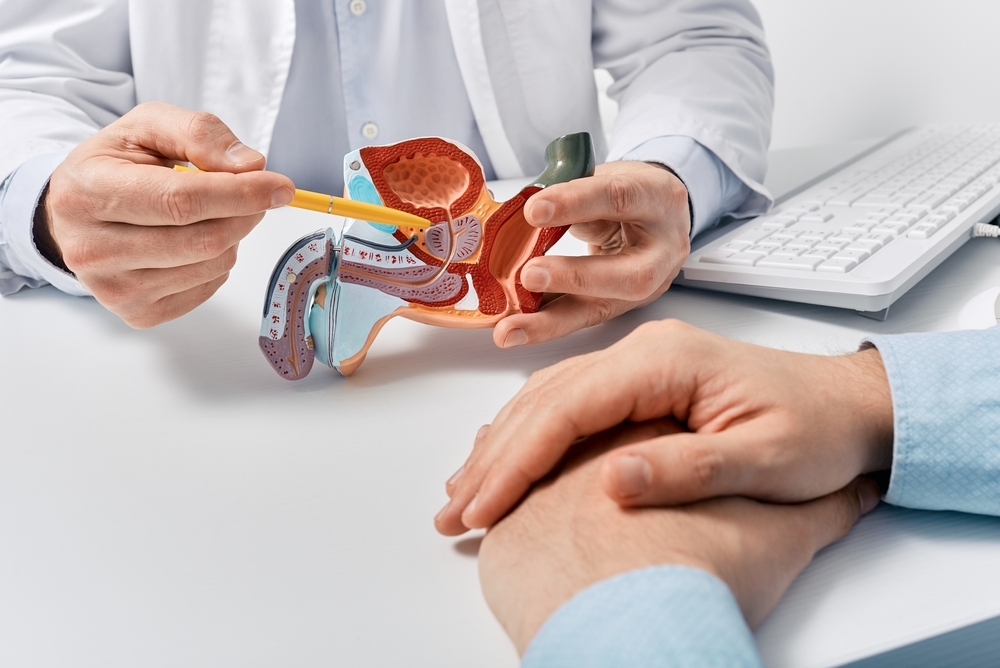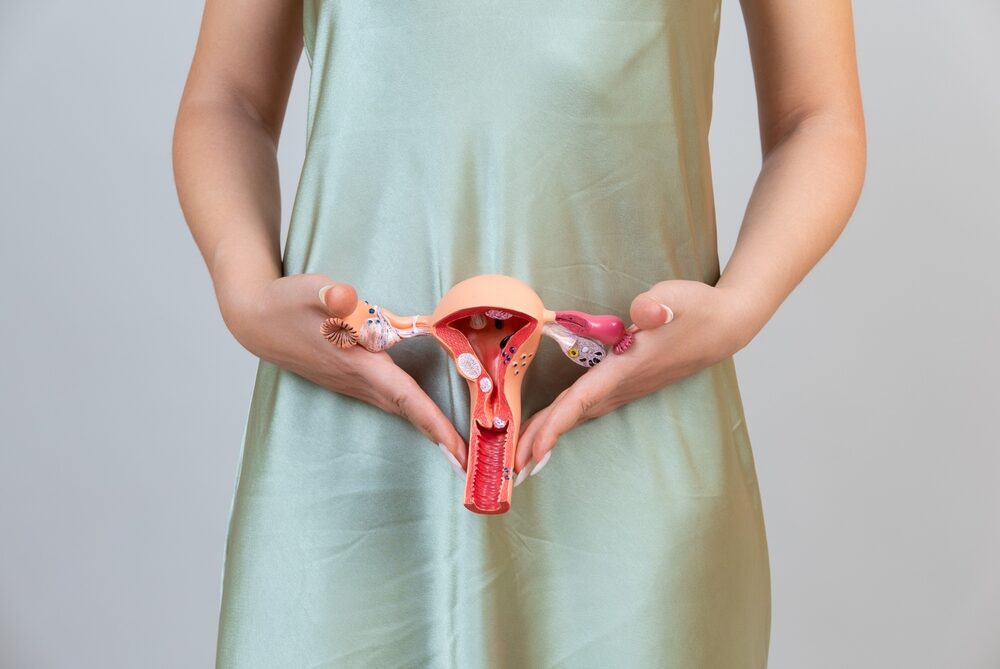
☝️ The most important facts in brief
- A urologist is a specialist who deals with the urinary organs and the male reproductive organs.
- Urologists also carry out screening examinations for the early detection of prostate cancer.
- A urologist treats both men and women for complaints, malformations and diseases of the urinary system.
- To become a urologist, you have to complete a 60-month specialist training programme in urology after studying medicine.
📖 Table of contents
Urologists are medical specialists who specialise in diseases and functional disorders of the urinary organs and male reproductive organs. With regard to the urinary system, these doctors treat both men and women. However, women's reproductive organs fall under the specialism of Gynaecology. To become a urology specialist, you need to have completed 6 years of Study medicine and then complete a 5-year specialist training programme. Find out more about this exciting profession now!
Are you interested in studying medicine?
We will be happy to advise you free of charge about your options for studying medicine, including advice on studying medicine in another EU country, which is fully recognised in Germany.
What is a urologist?
A urologist is a specialist who treats diseases and functional disorders of the urinary organs in men and women. The urinary organs include the kidneys, ureters, bladder and urethra. Urologists are also experts in the male reproductive organs such as the prostate, testicles and penis.
The urologist acquired his comprehensive specialist knowledge in a 60-month specialist training programme, which he attended after completing his medical studies. Urologists can work in a clinic or as a registered doctor in their own practice.
Becoming a urologist - the training
If you have decided to become a urologist, you will have to complete at least 11 years of training after graduating from high school. This essentially comprises two stages:
Study of medicine
First of all, you have to complete the medical degree programme, which lasts a total of 6 years, and take the state examination at the end. You will not yet specialise in urology, but will first be taught basic medical knowledge for 2 years in the pre-clinical phase, before gaining an overview and knowledge of various diseases in each specialist area in the clinical part. Urology and its typical clinical pictures are also covered here for one semester.
The last two semesters of the degree programme are a practical year. Here you will work for 16 weeks each in internal medicine, in the Surgery and in an area of your choice. This can of course also be urology. The practical year is followed by the final examination - the state examination. Once you have passed this, you are a doctor and can take up your first position in a clinic.
Further training as a specialist in urology
Once you have successfully completed your medical studies, you will continue your training to become a urology specialist. This takes at least 60 months. During this time, you will learn in detail how to diagnose and treat diseases of the urogenital system. This also includes preventive examinations with the aim of early detection of diseases such as prostate cancer.
After successfully completing further training and passing the specialist examination, you can call yourself a urology specialist.
Additional further training in andrology
After training as a urologist, many doctors also complete additional further training in andrology. This further training covers a wide range of knowledge on the diagnosis and treatment of male fertility and sexuality disorders. Andrologists also treat patients with partnership disorders and advise on male contraception.
Other topics include male endocrinology, erectile dysfunction, libido, ejaculation and cohabitation disorders and hypogonadism.
Contents of the specialist training programme
Training as a urologist covers a broad spectrum. With the knowledge acquired, the urologist-to-be becomes a specialist in the diagnosis and treatment of diseases of the urinary organs and male reproductive organs. The content of the training programme includes
- Screening and early detection
- Treatment of kidney, ureter, urinary bladder and prostate diseases
- Therapy for gender-specific problems in men
- Emergency care and treatment of injuries
- Investigations into cancer detection and therapy, including prostate cancer
- Aftercare and rehabilitation for the various diseases treated by the urologist
Tasks of a urologist
A urologist diagnoses and treats diseases of the urinary organs such as the kidneys, ureters, bladder and urethra. In men, he also examines and treats the prostate, testicles and penis.
As a urologist, you are the point of contact for changes relating to the male genitalia and diseases that affect the urinary organs.
The urologist is not just a "men's doctor"
A urologist is not just there for men. Although women's reproductive organs fall under the remit of gynaecologists, the urinary tract, bladder and other parts of the urinary system are treated by urologists for both sexes.
This means that women and children are also patients of a urologist, and it is therefore wrong to call him a "male doctor". He is the point of contact for both men and women for corresponding medical questions and problems.

Urological examination methods
Urologists carry out examinations using various methods. The most important of these include
- Ultrasound examination: Details of the kidneys, bladder and testicles can be visualised using ultrasound.
- Urography: A contrast agent can be used to visualise the patient's urinary tract and any changes in it.
- Cytoscopy: Cystoscopy is used to examine the bladder. A small camera is inserted directly into the bladder via the patient's urethra.
- Palpation of the prostate: This examination, which is recommended for cancer screening for men aged 45 and over, serves to recognise changes and, in particular, cancers of the prostate at an early stage so that they can be treated with a good prognosis.
- Prostate biopsy: If a change in the prostate is detected, a sample is taken. This allows us to determine whether the change in this area is benign or whether it is malignant.
Frequently encountered diseases in urology
The urologist deals with numerous diseases that can affect the urinary system and the reproductive organs of men. We would now like to briefly explain some of the most common reasons for a visit to the urology department.
Problems with the prostate
Prostate problems affect many men, especially as they get older. An enlarged prostate can constrict the urethra and make urination difficult. Prostate cancer is also the most common cancer in men. A simple palpation examination can make a significant contribution to early detection. This is why such examinations are regularly recommended from the age of 45.
Urinary tract infection
Urinary tract infections are one of the most common complaints with which both men and women consult a urologist. This can affect the bladder as well as the ureter, urethra and kidneys. The urologist carries out a urine test to diagnose the condition, which is usually treated with antibiotics.
Urinary incontinence
Uncontrolled urine leakage can affect anyone. It is often older people who suffer from this problem. Potential causes include weakened pelvic floor muscles or nerve damage. Malformations can also be present.
Urologists offer a range of treatments, from pelvic floor exercises to surgical procedures, to improve bladder control.
Kidney stones
The solid deposits that form in the renal pelvis can cause severe pain. The ureter is often blocked by such urinary stones. Depending on the size and location of the stones, they can be removed by a urologist using shock wave therapy or by surgery.
Renal insufficiency
When the kidneys no longer fulfil their tasks properly, the urologist speaks of renal insufficiency. Waste products can then no longer be filtered out of the blood efficiently. Causes of renal insufficiency can include diabetes, high blood pressure or chronic inflammation of the kidneys. If kidney function cannot be restored, dialysis is required.
Erectile dysfunction
If erectile dysfunction is present, the man has problems getting or maintaining an erection. This problem can affect men of all ages. The causes can be both physical and psychological.
Various treatment methods are available to the urologist. These include medication, hormone replacement therapy and psychological support.
When should I see a urologist?
Discomfort in the bladder, kidneys or urinary organs is a reason for a visit to the urologist. These include problems urinating and pain in the kidney area.
In men, pain or changes in the testicles and abnormalities in the penis are also a clear reason to see a urologist. Men aged 45 and over should also have regular check-ups to detect prostate cancer at an early stage. Early detection of cancer can ensure that treatment can be carried out with a significantly better prognosis.
If sexually transmitted diseases are suspected, a man should also consult a urologist. For women, on the other hand, the gynaecologist is the right person to contact in such cases.
The preventive medical check-up for men
The screening examination for men is important for the early detection of cancer. Many men are afraid or ashamed of this examination, as the urologist inserts a finger into the anus and feels the prostate. However, this fear is unfounded, as the examination takes less than a minute and, although it may be a little uncomfortable, it is not painful.
Unfortunately, too few men still take advantage of the opportunity for screening. The examination is recommended for all men aged 45 and over, but prostate cancer screening is recommended from the age of 40 if there is a family history of the disease.
The quick and uncomplicated palpation examination can ensure that a tumour is detected in good time and can be treated effectively. Particularly as prostate cancer is one of the most common cancers in men, screening should not be neglected.
Earnings and career opportunities as a urologist
What does a urologist do after completing their specialist training? You will be faced with this question when you have finished your training.
In clinics, urologists can earn between 6,000 and 8,000 euros per month, depending on their experience and position. Many specialists in this field aspire to a career as a senior physician or head physician at a clinic.
Alternatively, you have the option of becoming self-employed as a doctor with your own practice. Here, your earnings can be significantly higher, but you will also have to bear the corresponding risks and costs.
Urologists can also work in research. This often takes place parallel to their work as a doctor in the clinic.
Free information material
Studying medicine abroad 🎉
Order your info pack now, find out more about the Studying medicine abroad and get started as a medical student!





